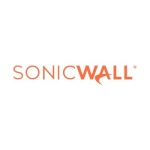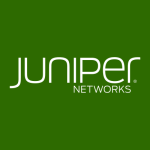What is our primary use case?
I have used Netgate pfSense for a range of purposes. Initially, I employed it for VPN connections, mainly for personal and professional use. I also relied on it to maintain network equipment in a professional context. In the professional sphere, I have experience with both pfSense and Juniper, but eventually, I decided to phase out Juniper due to its high costs, especially for updates and the addition of new functionalities. pfSense's cost-effectiveness and the flexibility to transition to new hardware while retaining configurations made it a preferred choice. pfSense also stands out in terms of its rapid algorithm evolution compared to competitors like Juniper. Its scalability is another advantage, where adding a new box or reconfiguring can boost the firewall's capacity.
On a personal note, I use Netgate pfSense to connect to my equipment at the data center. Currently, I have a highly available installation that requires two instances of pfSense. While I considered pfSense for this setup, I had to assess whether OpenSense might offer better features for future requirements before delving deeper into pfSense.
What is most valuable?
It's worth noting that Netgate pfSense's performance is independent of the hardware it runs on. As I mentioned earlier, its scalability is a strong point. Most functions are readily available, and additional features can be obtained by downloading and installing plugins, which are generally free. When you compare this to the alternative of purchasing a firewall from a different supplier, you'll find that the latter option typically doubles the cost of the firewall itself. This cost increase is often attributed to additional licenses for deep inspection and similar functionalities. While configuring pfSense may require more time and effort upfront, the long-term cost savings make it a more cost-effective choice.
What needs improvement?
One concern I have with Netgate pfSense is related to packet filtering. Specifically, issues can arise with certain functionalities like GP, and, at times, there may be bugs. When creating IP lists, I've noticed that synchronization doesn't always function correctly. While it's not entirely dysfunctional, troubleshooting these synchronization problems can be quite challenging.
For how long have I used the solution?
I have been using Netgate pfSense since 2015-16.
Buyer's Guide
Netgate pfSense
January 2026
Learn what your peers think about Netgate pfSense. Get advice and tips from experienced pros sharing their opinions. Updated: January 2026.
881,733 professionals have used our research since 2012.
What do I think about the stability of the solution?
I've experienced certain issues with Netgate pfSense in the past, particularly with the previous version, which was 2.5. It posed several problems. However, the current version appears to be more stable. Nonetheless, I still encounter troubleshooting challenges. For instance, there is an issue where it initially blocks an IP range but releases it after ten minutes. This behavior is somewhat peculiar, and it pertains to IP filtering.
How are customer service and support?
The support for Netgate pfSense mainly comes from online forums. These forums are populated by a significant number of individuals who are knowledgeable in pfSense and its related areas, making it a valuable resource.
Which solution did I use previously and why did I switch?
The choice of whether to use Netgate pfSense often depends on the company's preferences. In some cases, particularly in Switzerland, there is a strong preference for open source solutions. This choice is sometimes motivated by the desire for open source alternatives and can also be related to cost considerations.
How was the initial setup?
The Initial setup is very easy.
What's my experience with pricing, setup cost, and licensing?
Netgate pfSense is a cost-effective option. If you're not using a VPN, you can acquire a decent embedded PC for around a hundred dollars and install pfSense on it, effectively creating a robust firewall solution. With this setup, you can achieve a throughput of two hundred to three hundred megabits per second without any issues, provided you're handling relatively simple rules. The level of performance depends on the specific requirements and tasks.
What other advice do I have?
If you're considering using Netgate pfSense for the first time, I would recommend giving it a try. It's relatively easy to set up and use, especially if you have some prior knowledge of network and IT work. The user manual provides helpful guidance, and the basic configuration is straightforward. Just ensure you pay attention to the hardware requirements to make the most of it.
It can be rated as an eight for simplicity. However, as you progress and introduce complexities, such as enabling deep packet inspection, adding extra features, or installing multiple plugins, the configuration can become more intricate. I encountered some issues with iOS in version 2.5, but they are expected to be resolved or have been resolved.
Disclosure: My company does not have a business relationship with this vendor other than being a customer.

















